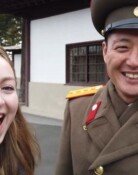Public opinion rigging of NIS and Druking
Public opinion rigging of NIS and Druking
Posted April. 18, 2018 07:58,
Updated April. 18, 2018 07:58
The ruling democratic party’s Druking scandal is reminiscent of the National Intelligence Service’s online comment incident in 2012. These two incidents both manipulated public opinion for a political party using online comments, but their crime subjects and activities were quite different.
The NIS incident was committed by a national organization, but illegal activities of the Druking scandal, were committed by a civilian. Back in 2012, the state organization commented on online forums and social networks during the presidential election by mobilizing its own agents, and the comments were mainly about slandering then opposite party candidate Moon Jae-in and supporting then ruling party candidate Park Geun-hye. It created 391 Twitter accounts and posted 295,636 tweets and retweets. It also left 2,124 comments on online boards.
Kim Dong-won, the arrested democratic party member known by his pen name “Druking,” allegedly manipulated the number of “like” or “feel the same way” clicks on news articles. He did not comment on articles directly, but jacked up the number of likes for comments that had similar political orientation with him so that those comments will appear on the top of the list.
Kim used a macro program that automatically repeats a task, while NIS agents had used a more traditional tactic of commenting in a secret room in 2012. He was able to effectively and resourcefully rig the public opinion, using state-of-the-art technology.
Different charges are applied to perpetrators based on their affiliation. NIS agents have been punished for political participation under the national intelligence service act, while former NIS head Won Se-hoon has been sentenced to four years in prison in August last year after the court ruled that he instructed his agents to leave comments.
Kim has been charged of obstruction of business because he is a civilian. If proven guilty, he may face up to five years in prison or a maximum 15 million won in fines. If he was paid by a lawmaker or politician, however, the person who paid him could also be charged of obstruction of business.
Seong-Taek Jeong neone@donga.com







